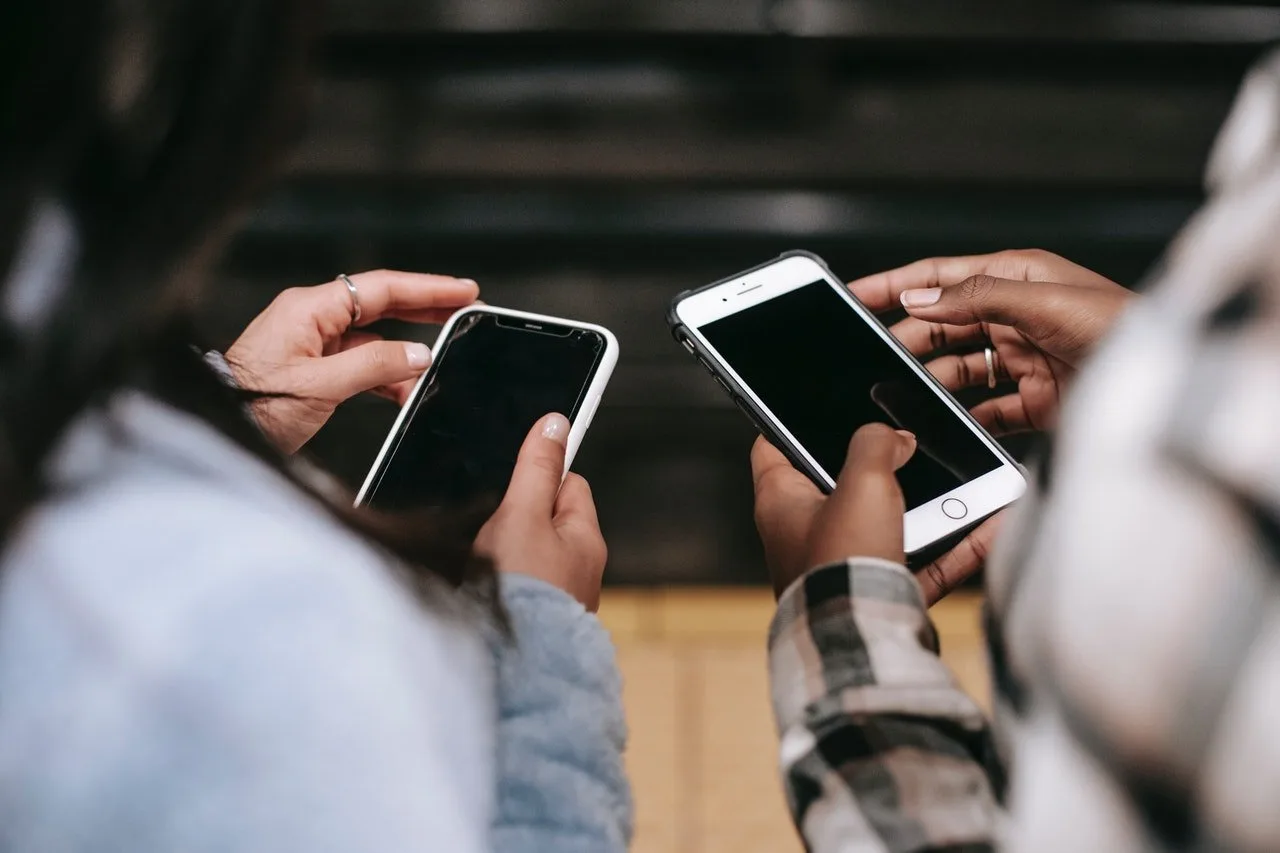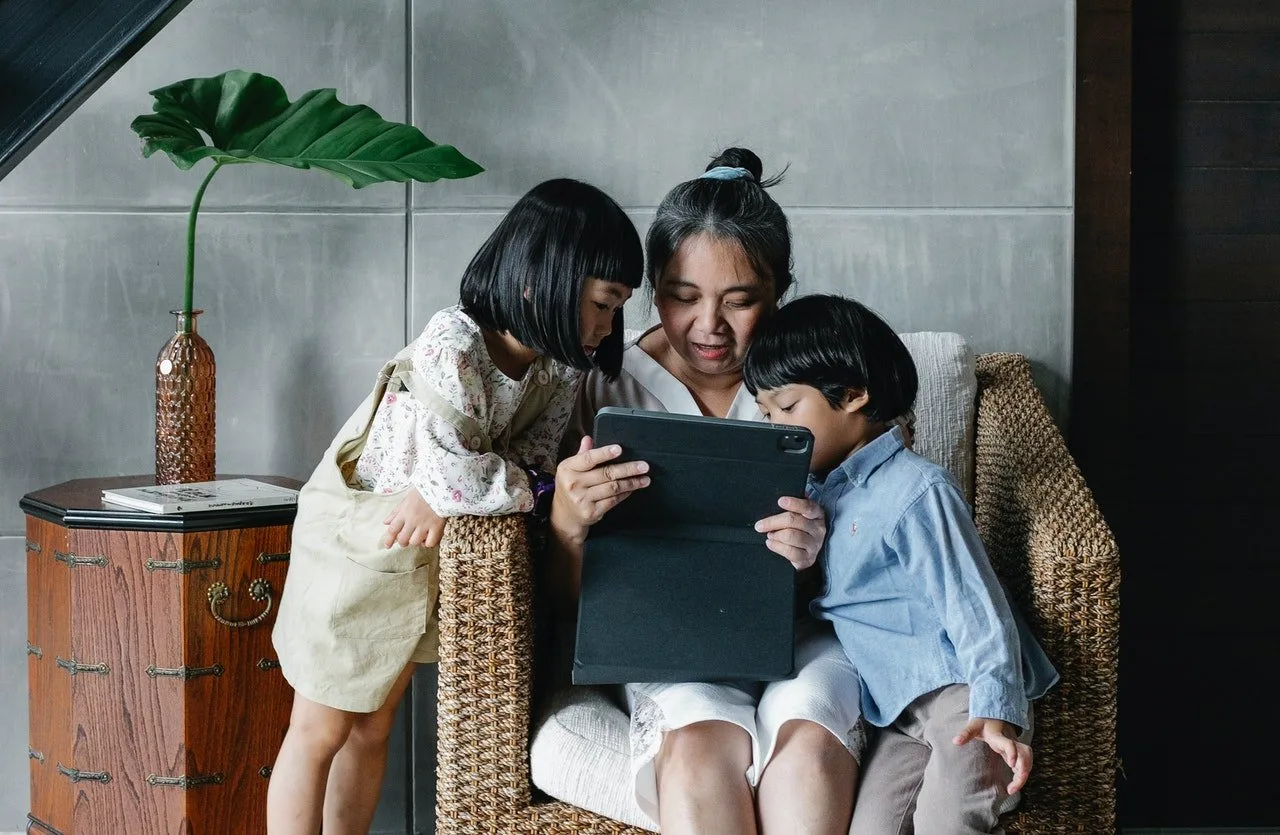A new study by Lenstore has revealed the detrimental effects of spending time on your devices during the pandemic whilst working from home and the effects this is having on your physical and mental health. They have also partnered with experts to share tips on ways you can reduce your screen time whilst working from home.

Photo by Charlotte May from Pexels
Are Your Devices Negatively Impacting Your Health?
According to a licensed psychotherapist, Akua K. Boateng, Ph.D., LPC., these are the 9 symptoms that may suggest your devices are having a negative impact on their health:
- Decreased concentration/focus/motivation
- Retina over-stimulation
- Vision changes and headaches can affect concentration and focus (computer vision syndrome; Visual display terminal syndrome)
- Technostress (symptoms: fatigue, irritability, insomnia, mental health effects: frustration and perceived increased level of mental load and time pressure, skepticism, sense of ineffectiveness)
- Fatigue; insomnia; delayed sleep (due to brightness of the screen and its impact on retina responsiveness; also disruption of the body’s melatonin production)
- Could be linked to loneliness/isolation
- Touch deprivation
- Increased stress related to hyper-focus on stress-inducing media (i.e. news about politics, civil unrest, etc)
- Lack of motivation/ creativity
Methodology
To calculate the health cost of screen time, we analyzed metrics including the average screen time per country pre- and post-March 2020 (COVID-19) alongside the percentage of mobile phone connections, social media, and internet users per population.
Collaborating with health experts, we also analyzed how time spent staring at screens affects our overall health and revealed what we can do to avoid the negative effects.
10 Tips To Try to Reduce Screen Time
1. Set a screen time maximum per day (4-6 hours max where possible with work schedule)
2. Plan screen-free activities a few times a week (even if they’re in the house, such as a games night)
3. Take media breaks 1-2 days a week outside of work-related hours to reconnect with human contacts and relationships
4. Turn down the brightness of screens or stop screen use to improve readiness to sleep 1-2 hours before bedtime
5. Use blue light protective glasses while using screens
6. Remove notifications
7. Always ask ‘why?’ when you’re about to pick up your phone
8. Set app limits to
9. Use dark mode to limit blue light
10. Seek professional help if you feel it is a serious problem impacting your mental and psychological health
You can view the full study here:
Final Thoughts
Yes, we need our devices. However, that doesn’t mean that we should let the effects disrupt our health. Thankfully, there are ways to manage your favorite devices and protect your health at the same time.
References
- https://www.codecomputerlove.com/blog/screen-time-stats/
- https://www.statista.com/statistics/1123889/daily-internet-usage-by-age-and-device-uk/
- https://www.statista.com/statistics/790539/mobile-internet-daily-users-by-age-germany
- https://www.statista.com/statistics/830439/online-video-services-users-age-group-germany/
- https://www.statista.com/statistics/749236/electronic-devices-daily-use-by-type-in-spain/
- https://www.statista.com/statistics/420834/minutes-a-week-spent-on-visiting-social-networks-in-spain/
- https://www.statista.com/statistics/523740/global-mobile-app-user-retention-rate-by-vertical/
- https://www.ncbi.nlm.nih.gov/pmc/articles/PMC7390728/
- https://ads.google.com/aw/keywordplanner/plan/keywords/historical?ocid=128557450&planId=262735469&euid=112010223&__u=3540694327&uscid=104211423&__c=8685513127&authuser=1&subid=ie-en-ha-aw-sk-c-bau%21o3~Cj0KCQiAk53-BRD0ARIsAJuNhpvjOUY0dQZAv-pCjxlhuiKre8XRjSgl5XPswW0frq9uYqutPjNAf2IaAvcFEALw_wcB~57054690363
- https://www.scripps.org/news_items/6626-how-much-screen-time-is-too-much
- https://www.worlddata.info/average-income.php
- https://www.globalwebindex.com/hubfs/Downloads/The-Global-Social-Media-Landscape-infographic.pdf
- https://www.thehrdirector.com/business-news/health-and-wellbeing/irreparable-eye-damage-24-seven-screen-time1237/
- https://businessfibre.co.uk/screen-time/
- https://datareportal.com/reports/digital-2020-global-digital-overview
- https://hootsuite.com/pages/digital-2020
Additional reading
Read how the blue light from Zoom meetings may be damaging your eye health.






![women [longevity live]](https://longevitylive.com/wp-content/uploads/2020/01/photo-of-women-walking-down-the-street-1116984-100x100.jpg)









